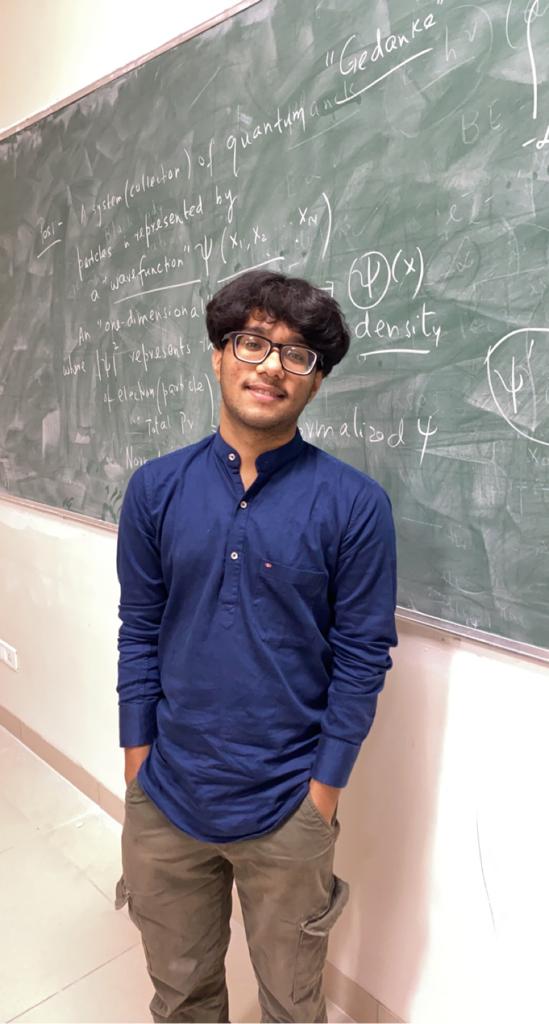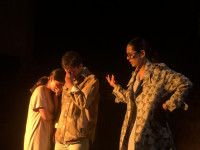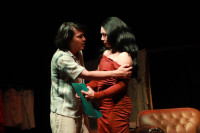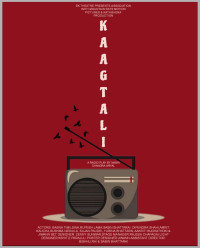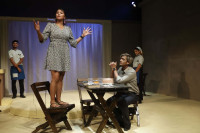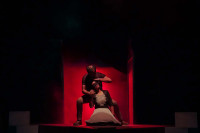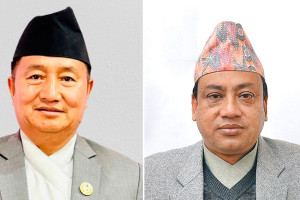Theater
From slapstick comedy to serious social commentary
Mandala Alumni Drama Festival features six unique plays blending humour, music, and poignant storytelling.
Kshitiz Pratap Shah
The theme of this year’s MADFest (Mandala Alumni Drama Festival), ‘Youth, roots and stage’, sums up the event. A first of its kind, MADFest showcases six original plays created by the alumnus of the Mandala Theatre Nepal, each uniquely pushing the notion of performativity and theatre.
The performances range from musicals and satirical comedies that metaphorise concepts like religion and politics with the inquisitive nature of an eager child to thoughtful, serious discourses on sensitive matters that feel very real.
The event, which began on July 5, will continue until today.
Anup Neupane, the festival director, believes the fest to be a platform to showcase the energy and creativity of its young alum. Formed in 2012 to educate young artists in Theater art, Mandala Theatre is a popular name in Nepal’s theatre scene.
Pream Silwal, the festival coordinator, says, “This event is an artistic celebration of the works of our alum, and we want to share their energy with everyone.”
“Many theatre spaces are bogged down by integrating or adapting foreign plays or books. We want to give space to original plays,” Neupane adds.
In this venture, nearly 18 ideas were first shortlisted and developed along the way, with six of them being finalised. “Roots also mean coming back to Mandala, where many of us learned our art,” adds Silwal.
“The plays are different from each other and talk about different issues. Three plays focus on matters of women, but each brings out a different aspect of that conversation,” Neupane adds.
These performances are also different in terms of their visual forms and genres. ‘Railway to Nowhere’ resembles a Chaplinesque slapstick comedy and switches between many forms.
‘Ankuran’ is more serious but also limited in a spatial sense, but it works for the play. In fact, ‘Ankuran’ also includes a musical and oral storytelling element in its enactment, which is formally different from other plays.
‘Nughda’ is a dance drama, one of its kind in terms of Mandala productions, and very evocative in its form. Nuhang Lama, lead actor, writer and director of ‘Nughda’, suggests that 30 to 40 percent of the play is dance.
In this and many ways, each play in MADFest pushes the boundaries of performativity.
While many performances in MADFest, are quite reflective, ‘Railway to Nowhere’, written by Samyog Guragain, goes the opposite way by externalising its metaphors in an almost unrecognisable way.
The characters are unnamed. Their identities consist solely of stories from their past, often distorted and unclear. They possess a means to link themselves to this past and the identity it brings, along with an intense determination to encounter this unknown yet all-knowing figure, the Commander.
These characters, representing people from different aspects of art, life, and beliefs, don’t know each other outside of this purgatory-like railway bubble but call each other ‘Aafanta’ (relative), drawing a hidden, beautiful connection.
The brilliant humour in the performance makes these complex ideas approachable but also mind-blowing.
In a performative sense, the closest I would describe this play as is slapstick comedy, but with an awareness of presenting something serious. Yet, like many MADFest plays, this performance does not limit itself to one form.
There are music numbers, and some allegories about the Commander are religious and philosophical.
This play encourages viewers to see the overall plot as secondary, instead focusing on the symbolic, fragmented ideas that are enjoyable to explore.
The other play, ‘Ankuran’, written and directed by Sagar Karki, is much more sombre and grounded. The story follows Usha, a young woman who is a victim of gang rape and is subsequently scrutinised and ostracised in social spaces.
‘Ankuran’ deals with a sensitive topic that could have easily been laden with a more sympathetic stance. Yet, ‘Ankuran’ does not cast its protagonist, Usha, in a position of sympathy. Instead, it highlights her strength, which emerges not from her victimhood but despite it.
The play also deals with the discomfort of acknowledging such a crime and how our society deals with it—largely through distaste and distancing while still inconsiderate of the victim.
The play is presented in a smaller, enclosed theatre, and the proximity is evident in the performance. One thing that stood out was how realistic the performances were—personal and sombre.
‘Ankuran’ believes its audience is smart and sensitive enough not to add filters of performative sadness to convey the sentiment. That is the purpose of the play, bringing out aspects of incidents of rape, sexual assault and similar crimes that are often unnoticed on the surface or rather unnoticed in a society used to distance itself from such cases.
Four other plays featured at MADFest run until Sunday evening at the Mandala Theatre Nepal, Thapagaun. These plays will also be shown multiple times over the next two months, allowing viewers to explore them in detail.




 24.71°C Kathmandu
24.71°C Kathmandu

